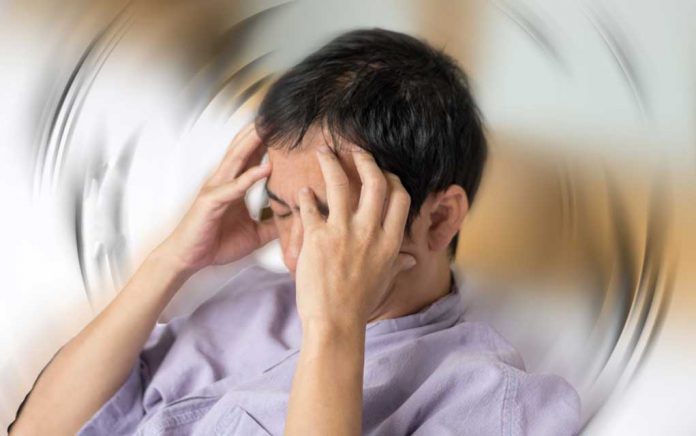
(AscendHealthy.com) – Feeling dizzy when you stand up may not be a problem, but it could also signal medical issues. How do you know when to worry? To decide if a doctor’s visit is in order, you need to know what causes these dizzy episodes. We have a list of potential causes you should know about in the full article below.
Orthostatic Hypotension
As a fancy name for a drop in blood pressure when standing, orthostatic hypotension is the cause of dizzy spells that occur when a person suddenly goes from lying or sitting down to standing up. This pressure drop happens because blood tends to pool temporarily in the legs upon standing. It takes a moment for the body to compensate by increasing heart rate and squeezing the blood out of the legs’ larger veins.
Eating a Big Meal
If you’ve recently consumed a large meal, especially one consisting of a lot of fat, you could also experience a “woozy” spell when you stand up. That occurs when blood heads to the stomach to help with digestion. Since more blood is pooling there, it’s not available for the rest of the body and can cause dizziness when standing up. Blood pressure is typically a little lower during digestion, and that lowered pressure can last for a few hours.
Age Could Be a Factor
In people who are 65 or older, around 20 percent have some form of orthostatic hypotension. They may not have it all the time, but only sometimes. For example, they may be fine standing up from a sitting position during the day but might feel dizzy if they suddenly go from lying down to standing as they get out of bed in the morning. Sitting on the side of the bed for a moment before standing up might mitigate dizziness to a degree.
Treating These Dizzy Spells
The good news is that mild and occasional dizzy spells when standing don’t need treatment. They are common throughout the population and aren’t usually any cause for concern. But if the dizzy spells are frequent, cause fainting or increase the risk for falling, it’s vital to investigate the cause. In some cases, a person’s blood pressure remains too low throughout the day and can be treated, so the dizzy spells subside.
Drinking plenty of water, lightly exercising in the morning, and eating smaller meals may all help reduce the chances of having a dizzy spell when standing. Anyone experiencing this problem may also want to consider talking with their doctor about any medications that could be contributing and rising more slowly to reduce their risk of feeling dizzy.
If the dizzy spells increase or become problematic or if fainting occurs, be sure to talk to a medical professional. A healthcare provider can evaluate any contributing health issues and medications and might be able to make recommendations to control the frequency or intensity of the spells.
~Here’s to Your Healthy Ascension
Copyright 2023, AscendHealthy.com




















